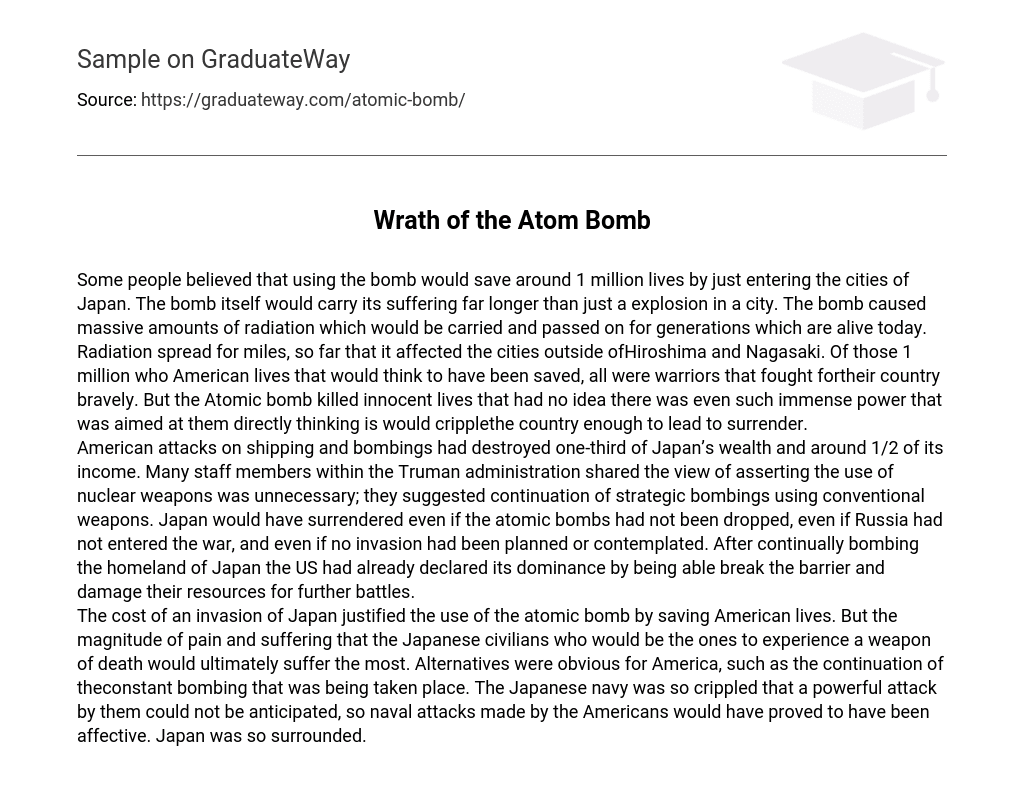Some people believed that using the bomb would save around 1 million lives by just entering the cities of Japan.
The bomb itself would carry its suffering far longer than just a explosion in a city. The bomb caused massive amounts of radiation which would be carried and passed on for generations which are alive today. Radiation spread for miles, so far that it affected the cities outside ofHiroshima and Nagasaki. Of those 1 million who American lives that would think to have been saved, all were warriors that fought fortheir country bravely. But the Atomic bomb killed innocent lives that had no idea there was even such immense power that was aimed at them directly thinking is would cripplethe country enough to lead to surrender.
American attacks on shipping and bombings had destroyed one-third of Japan’s wealth and around 1/2 of its income. Many staff members within the Truman administration shared the view of asserting the use of nuclear weapons was unnecessary; they suggested continuation of strategic bombings using conventional weapons. Japan would have surrendered even if the atomic bombs had not been dropped, even if Russia had not entered the war, and even if no invasion had been planned or contemplated. After continually bombing the homeland of Japan the US had already declared its dominance by being able break the barrier and damage their resources for further battles.
The cost of an invasion of Japan justified the use of the atomic bomb by saving American lives. But the magnitude of pain and suffering that the Japanese civilians who would be the ones to experience a weapon of death would ultimately suffer the most. Alternatives were obvious for America, such as the continuation of theconstant bombing that was being taken place. The Japanese navy was so crippled that a powerful attack by them could not be anticipated, so naval attacks made by the Americans would have proved to have been affective. Japan was so surrounded.





